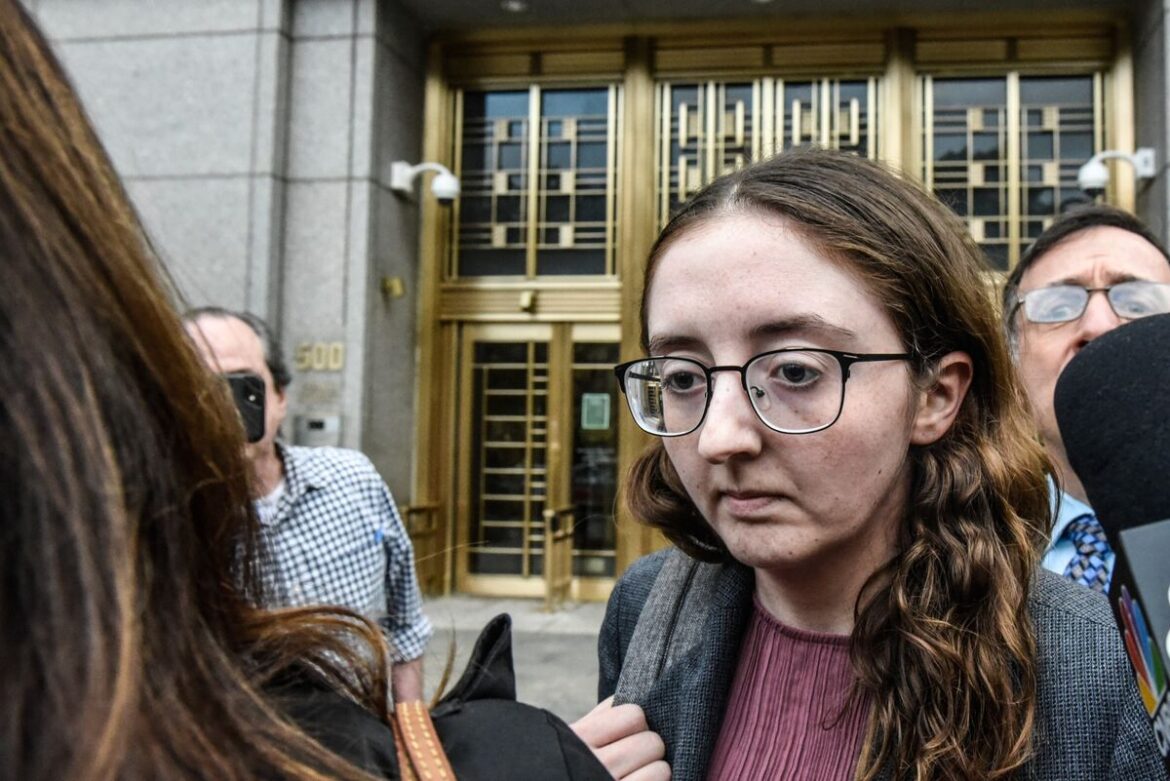On Tuesday, former FTX executive Caroline Ellison stood at a dais on the 21st floor of a Manhattan courthouse, her voice breaking as she asked a judge for a lenient sentence. Her parents and two younger sisters watched as she addressed the court.
Despite Ellison’s plea for no prison time, with prosecutors acknowledging her extensive cooperation in building their case against Ellison’s former boyfriend, Sam Bankman-Fried, Judge Lewis Kaplan sentenced her to two years in federal prison.
Ellison will begin her sentence in early November and will be admitted to a minimum-security prison, with Kaplan granting her request to serve her time at a facility close to her family in Boston.
Ellison’s downfall has become the subject of morbid fascination over the past two years, as the public has picked over the collapse of FTX, once valued at $32 billion, and its inner circle of 20 and 30-something executives, many of whom dated or counted each other as lifelong friends.
Ellison joined Bankman-Fried’s orbit as a trader at his hedge fund Alameda Research at just 24 years old, and soon becoming its CEO. As she acknowledged during three days of emotional testimony during Bankman-Fried’s trial last fall, she also played a crucial role in the fraud that took down the empire, with FTX funneling billions in dollars of customer assets to fund disastrous trades at Alameda, along with luxury real estate, illegal campaign donations, and venture investments.
On Tuesday, Ellison admitted once again that she should have stopped the fraud sooner, but she was unable to, drawn in by what she describes as her admiration—and often unrequited love—of Bankman-Fried. “I’m sorry I wasn’t brave,” she said.
Despite her role in what Kaplan characterized as “the greatest financial fraud ever committed in this country,” both Ellison’s lawyers and prosecutors highlighted her work with the government and the FTX bankruptcy estate to recover assets for customers and build the case against Bankman-Fried. Assistant U.S. Attorney Danielle Sassoon argued that Ellison deserved a lenient sentence for her cooperation.
After a lengthy monologue extolling the history of sentencing guidelines, Kaplan praised Ellison’s work with prosecutors, saying that he had “never seen [a cooperator] quite like Ms. Ellison,” with her testimony during Bankman-Fried’s trial containing no errors or inconsistencies. Still, he questioned why she had followed such a dark path, musing that Bankman-Fried was her “kryptonite.” His sentence of two years was notably stiffer than what Ellison’s lawyers—and the probation department—recommended, although she is unlikely to serve the full time.
She will also have to take part in remission process that would result in any recovered funds from the fraud going to victims of FTX’s collapse. Ellison kept the vast majority of her savings on FTX and has not made an effort to regain any funds, and has surrendered her largest holding—a $10 million investment in the AI giant Anthropic. According to her lawyers, she has also agreed to share any money she earns from telling her story of her role at FTX, so that she will be unable to profit from her time at the crypto empire.
Bankman-Fried was sentenced to 25 years in prison in March, and former FTX executive Ryan Salame received 7.5 years in May after pleading guilty but deciding not to cooperate with prosecutors. Two other insiders, Nishad Singh and Gary Wang, are still awaiting sentencing.
- Nike Accused of ‘Brazen Rug Pull’ in Class Action Lawsuit
- Trump Family’s DeFi Project Pushes US-Pegged Stablecoins
- XRP up 20% After Judge Fines Ripple $125M, Ending Four-Year-Long Lawsuit with SEC
- Stablecoin Giant Circle Files for IPO After $1.7B Stablecoin Reserve Windfall
- Ripple Poised For New York Approval of Stablecoin, Set to Enter Regulated US Crypto Market
- SEC Closes Investigation into Crypto Exchange Gemini, Cameron Winklevoss Says






